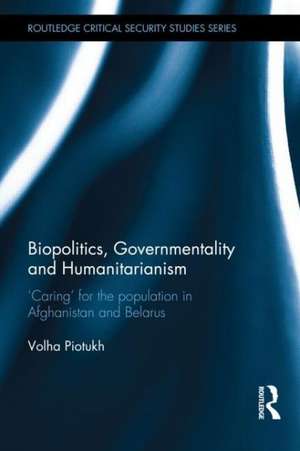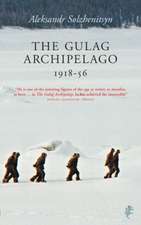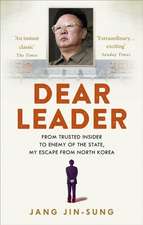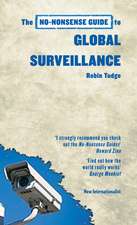Biopolitics, Governmentality and Humanitarianism: 'Caring' for the Population in Afghanistan and Belarus: Routledge Critical Security Studies
Autor Volha Piotukhen Limba Engleză Hardback – 15 apr 2015
It offers a compelling and insightful interpretation of the policies and practices associated with ‘new humanitarianism in general, as well as of the dynamics of two specific international assistance efforts: the post-2001 conflict-related assistance effort in Afghanistan and the post-2000 Chernobyl-related assistance effort in Belarus.
The central argument of the book is that ‘new’ humanitarianism represents a dominant regime of humanitarian governing informed by globalising neoliberalism and is reliant on a complex set of biopolitical, disciplinary and sovereign technologies. It demonstrates that, while the purposes of humanitarian governing are specific to particular contexts, its promise of care is more often than not accompanied by sovereign and/or biopolitical violences.
Making an important contribution to existing scholarship on humanitarian emergencies and humanitarian action, on biopolitics and governmentality, this book will be of much interest to students and scholars of humanitarianism, critical security studies, governmentality and International Relations generally.
Din seria Routledge Critical Security Studies
-
 Preț: 441.74 lei
Preț: 441.74 lei -
 Preț: 473.88 lei
Preț: 473.88 lei - 22%
 Preț: 322.89 lei
Preț: 322.89 lei -
 Preț: 485.75 lei
Preț: 485.75 lei -
 Preț: 491.26 lei
Preț: 491.26 lei - 26%
 Preț: 822.54 lei
Preț: 822.54 lei - 13%
 Preț: 334.55 lei
Preț: 334.55 lei - 26%
 Preț: 849.29 lei
Preț: 849.29 lei -
 Preț: 416.22 lei
Preț: 416.22 lei -
 Preț: 386.77 lei
Preț: 386.77 lei -
 Preț: 383.89 lei
Preț: 383.89 lei -
 Preț: 118.49 lei
Preț: 118.49 lei - 17%
 Preț: 259.98 lei
Preț: 259.98 lei -
 Preț: 412.37 lei
Preț: 412.37 lei -
 Preț: 416.22 lei
Preț: 416.22 lei - 18%
 Preț: 1003.43 lei
Preț: 1003.43 lei -
 Preț: 329.88 lei
Preț: 329.88 lei - 18%
 Preț: 1001.77 lei
Preț: 1001.77 lei
Preț: 1045.25 lei
Preț vechi: 1274.70 lei
-18% Nou
Puncte Express: 1568
Preț estimativ în valută:
200.06€ • 208.07$ • 167.65£
200.06€ • 208.07$ • 167.65£
Carte tipărită la comandă
Livrare economică 13-27 martie
Preluare comenzi: 021 569.72.76
Specificații
ISBN-13: 9780415855457
ISBN-10: 0415855454
Pagini: 178
Dimensiuni: 156 x 234 x 14 mm
Greutate: 0.18 kg
Ediția:New.
Editura: Taylor & Francis
Colecția Routledge
Seria Routledge Critical Security Studies
Locul publicării:Oxford, United Kingdom
ISBN-10: 0415855454
Pagini: 178
Dimensiuni: 156 x 234 x 14 mm
Greutate: 0.18 kg
Ediția:New.
Editura: Taylor & Francis
Colecția Routledge
Seria Routledge Critical Security Studies
Locul publicării:Oxford, United Kingdom
Public țintă
Postgraduate, Professional, and UndergraduateCuprins
Introduction 1. ‘Working with Foucault after Foucault’: biopolitics, governmentality and the international 2. ‘New’ humanitarianism as a regime of governing: context, agendas, actors, technologies 3. ‘Caring’ for the population of Afghanistan: the biopolitics of aid securitisation and militarisation 4. ‘Caring’ for the population of Belarus: problematisations that matter and Chernobyl’s ‘ghosts’ Conclusions Bibliography
Notă biografică
Volha Piotukh holds PhD in Politics and International Studies and is currently Postdoctoral Research Associate at Durham University.
Recenzii
'... the book promises something new and thought‐provoking to many in the reading audience... this is an insightful read that will be welcomed by scholars and intellectuals interested in Afghan and Belarusian politics and society, and/or the topics of biopolitics, international governmentality, and international humanitarian action.'--Evgenia Ivanova, Journal of Soviet and Post-Soviet Politics and Society (JSPPS)
Descriere
This book critically analyses the changing role and nature of post-Cold War humanitarianism, using Foucault's theories of biopolitics and governmentality.
This book interprets the policies and practices associated with the new humanitarianism in general, as well as the dynamics of two specific international assistance efforts: the post-2001 conflict-related assistance effort in Afghanistan and the post-2000 Chernobyl-related assistance effort in Belarus. The book thereby demonstrates that it is possible to generate a powerful and insightful interpretation of the changing role and nature of humanitarian action, and, in so doing, to better understand contemporary humanitarianism, as well as identifying resistances to it and envisaging alternative ways of addressing humanitarian concerns.
Making an important contribution to existing scholarship on humanitarianism, the changing nature of post-Cold War humanitarian action, and Foucault, this book will be of much interest to students of critical security studies, humanitarianism, governmentality, and IR more generally.
This book interprets the policies and practices associated with the new humanitarianism in general, as well as the dynamics of two specific international assistance efforts: the post-2001 conflict-related assistance effort in Afghanistan and the post-2000 Chernobyl-related assistance effort in Belarus. The book thereby demonstrates that it is possible to generate a powerful and insightful interpretation of the changing role and nature of humanitarian action, and, in so doing, to better understand contemporary humanitarianism, as well as identifying resistances to it and envisaging alternative ways of addressing humanitarian concerns.
Making an important contribution to existing scholarship on humanitarianism, the changing nature of post-Cold War humanitarian action, and Foucault, this book will be of much interest to students of critical security studies, humanitarianism, governmentality, and IR more generally.









